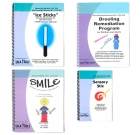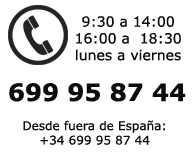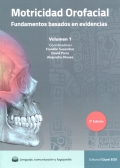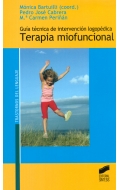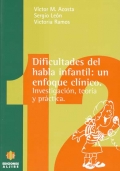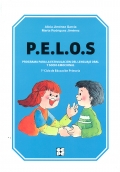- Cuadernos para adultos
- Educación
- Educación artística
- Educación especial/NEE
- Educación física
- Diccionarios
- Escuela
- Estimulación precoz
- Guías para padres
- Infantil y juvenil
- Libros de juegos y actividades
- Lingüística
- Logopedia
- Pedagogía
- Pruebas y protocolos
- Psicología
- Refuerzo escolar
- Salud
- Sociología
- Temas de autoayuda
- Terapias complementarias
- Tercera edad
- Promociones
REGISTRO
LIBRO
77.36 Euros
Agotado
Proporciona tu email y te avisaremos si vuleve a estar disponible:
Therapy Program TalkTools - 4 Manuals
Sara Rosenfeld-Johnson
TalkTools program manuals together provide clinicians and families with useful assessment and therapy strategies related to oral-motor, sensory, feeding and speech disorders.
SMILE Program
This manual is a fun and practical resource to fix tongue thrust, together with the set of appropriate tools. The SMILE (SysteMatic Intervention for Lingual Elevation) Program, developed by Robyn Merkel-Walsh, targets speech and swallowing skills in a 14-step hierarchy. Designed for children 7-12, yet appropriate for teens and adults, the manual is illustrated with “Mr. Smile” pictures to better visualize the techniques.
Ice Sticks Program
Ice Sticks promote thermal stimulation for oral movement. The program is designed for clients who cannot achieve lip closure, jaw closure or sufficient tongue retraction to mobilize a bolus back to achieve a swallow. These deficits are particularly seen in clients with Cerebral Palsy, Traumatic Brain Injury and Moebius Syndrome. Through direct stimulation of the lips, Ice Sticks’ multi-sensory exercises help develop prerequisite skills to implement an Oral Placement, feeding or speech therapy program.
Sensory Stix Program
The Sensory Stix Program is designed to transition oral movement taught in oral-motor exercises into volitional movement for speech production. In addition, these exercises are useful in the remediation of tongue thrust and in improving oral resting postures. The “Sensory Stix” is used to place candy powder on the target articulator in order to provide a tactile and flavorful cue for stimulating specific jaw-lip-tongue placement needed for speech production and swallowing.
Drooling Remediation Program
Do you want to address drooling with a systematic method rather than juggling with various therapy tools you already own? The Drooling Remediation Manual has a step-by-step approach that doesn’t focus on behavior but rather addresses the cause of drooling with a new set of eyes, Oral Placement Therapy. It can be implemented by therapists as well as parents.
Possible areas of saliva control deficit include: body posture, sensory awareness, lip closure and saliva retraction. The goal of this program, as with all we create at TalkTools, is to educate you as we teach you how to correct these deficits.
G R A T I S
TIENDA

-
Aborda los elementos básicos que permitirán a los profesionales vinculados al estudio del sistema estomatognático, así como de la...26.30 €
-
Esta obra está dirigida a especialistas y estudiantes de Logopedia, así como a pacientes y familiares y otros profesionales, ya qu...23.50 €
-
El contenido de esta obra abarca prácticamente todos los aspectos que deben ser contemplados en un análisis de evaluación e interv...13.50 €
-
El objetivo principal que tenemos que plantearnos con la estimulación oral en el primer ciclo de Educación Primaria es el aumentar...9.25 €



